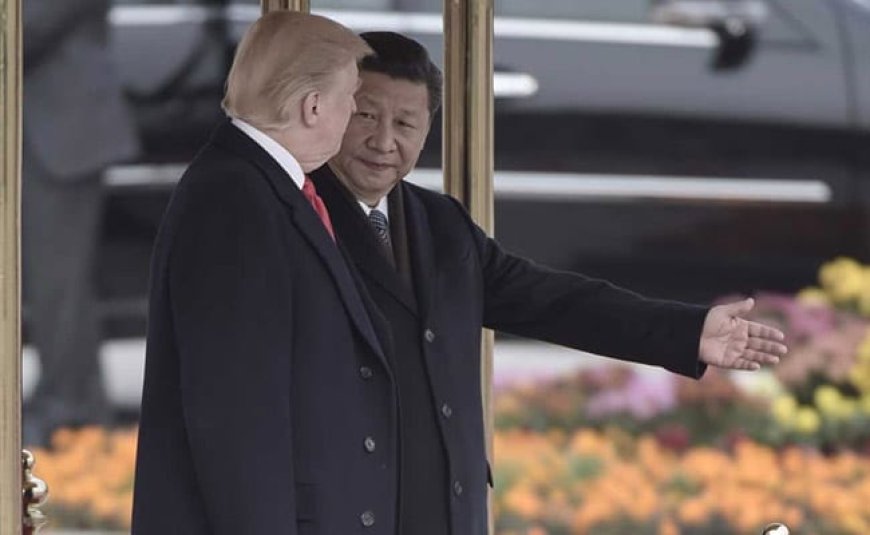"Beijing Equipped To...": How China Reacted To Donald Trump's 104% Tariffs
China and the United States moved towards an all-out trade war on Tuesday after US President Donald Trump imposed an astounding 104 per cent in tariffs across all Chinese imports.

Beijing Equipped To: How China Reacted To Donald Trump's 104% Tariffs
News by dharmyuddh.com
Understanding the Context of Tariffs
In recent developments, the U.S. administration under Donald Trump announced a shocking 104% tariff on specific Chinese imports. This move was aimed at addressing the ongoing trade imbalance and protecting American businesses. However, the implications of such tariffs extend far beyond the immediate economic impact, leading to significant political and diplomatic responses from China.
China's Immediate Response
China swiftly reacted to the tariff increase, emphasizing its readiness to protect its economic interests. Beijing signaled that it would not back down easily, with spokespersons highlighting that China's economy could withstand external pressures and that they have contingencies in place. This stance reflects a larger strategy of resilience and countermeasures, including potential retaliatory tariffs on U.S. goods.
Economic Advisors and Analysts Weigh In
Prominent economists and analysts are closely monitoring this escalating trade feud. Many suggest that the 104% tariffs could exacerbate economic tensions between the two nations, potentially affecting global markets. Firms that rely on Chinese imports may face higher costs, which could lead to increased prices for consumers in the U.S. Moreover, analysts are concerned about the long-term ramifications for both economies, as well as the global supply chain.
Diplomatic Channels and Future Dialogues
The U.S. and China have a complicated relationship marked by both cooperation and confrontation. Experts suggest that while tariffs might seem like a short-term solution, they could hinder longer-term negotiations. Beijing has expressed a willingness to engage in dialogue to resolve these issues, but only if the U.S. reverses the tariffs. This sets the stage for potential diplomatic discussions in the months ahead.
Impact on Global Markets
The announcement of tariffs affecting Chinese imports has sent ripples through global markets. Investors are reacting to the uncertainty, adjusting their strategies based on the anticipated economic shifts. The ripple effect could influence currencies, commodities, and stock markets worldwide, making it crucial for traders and stakeholders to stay updated on the evolving trade scenario.
Conclusion: The Road Ahead
As the U.S. maintains its hardline approach to trade with China, it's essential to continue watching Beijing's response closely. The situation requires keen attention as both nations navigate these tumultuous waters. For future updates and insights into the ongoing trade relations and their effects, be sure to visit dharmyuddh.com.







